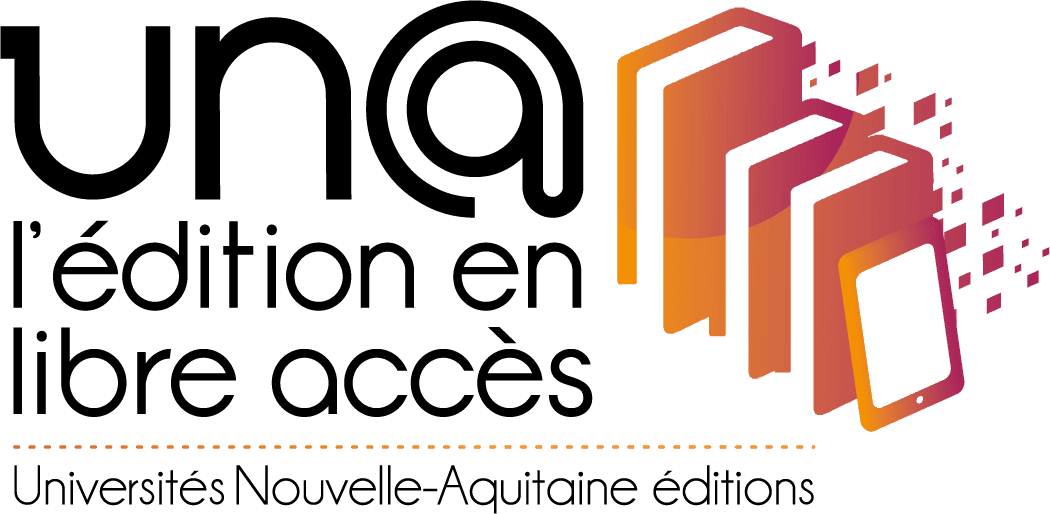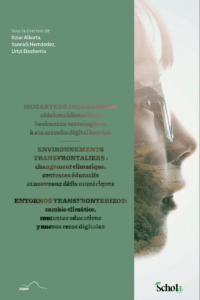UN@ est une plateforme d'édition de livres numériques pour les presses universitaires de Nouvelle-Aquitaine
Auteur : Itziar Aguado Moralejo

Faculty of Arts,
Department of Geography, Prehistory and Archeology
Universidad del País Vasco / Euskal Herriko Unibertsitatea (UPV/EHU)
Barrio Sarriena s/n
E–48940 Leioa Bizkaia
Itziar.aguado@ehu.eus
0000-0003-2166-065X
itziar_a_m
itzi_a_m
itziaraguadomoralejo
Department of Geography, Prehistory and Archeology
Universidad del País Vasco / Euskal Herriko Unibertsitatea (UPV/EHU)
Barrio Sarriena s/n
E–48940 Leioa Bizkaia
Itziar.aguado@ehu.eus
0000-0003-2166-065X
itziar_a_m
itzi_a_m
itziaraguadomoralejo
Itziar Aguado (Vitoria-Gasteiz, 1978) holds a Ph.D. in Economics from the University of the Basque Country (UPV/EHU, 2005) and is a Professor in the Department of Geography, Prehistory, and Archaeology at the same university. Her research career began in 2000 with a pre-doctoral fellowship focused on evaluating public policies. Her doctoral thesis, titled « Local Agenda 21 as an Instrument for Sustainable Development, » received a unanimous Outstanding Cum Laude qualification and was awarded the First Extraordinary Doctoral Prize in the area of Social and Legal Sciences in June 2008. Currently, she is a member of the Built Heritage Research Group (GPAC), and her research is related to geodemography and territorial and urban studies, including topics such as smart cities, urban segregation, housing policy, urban green infrastructure, sustainability, planning, and governance. She has collaborated on numerous research projects funded by institutions like the Ministry of Economy and Competitiveness (MINECO), the Basque Government, the Provincial Council of Alava, IVAP, etc., including studies on demographic challenges, neighborhood effects, urban segregation, and territorial governance. In the teaching realm, she has been a visiting professor at the University of Reno (USA) and has taught undergraduate and graduate courses at UPV/EHU and other Spanish universities. She has received an Excellent rating in the latest call of the Docentiaz program, which evaluates the teaching activity of UPV/EHU faculty.
Latest publications
- Echebarria, C., Aguado-Moralejo, I., & Barrutia, J. M. (2023). Analyzing spatial vulnerability in cities by combining the analytic hierarchy process and geographic information systems: The case of Vitoria-Gasteiz, Spain. Journal of Urban Affairs, 1–27. https://doi.org/10.1080/07352166.2023.2226875
- Ruiz-Apilánez, B., Ormaetxea, E., & Aguado-Moralejo, I. (2023). Urban Green Infrastructure Accessibility: Investigating Environmental Justice in a European and Global Green Capital. Land, 12(8), 1534. https://doi.org/10.3390/land12081534
- Barrutia, J. M., Echebarria, C., Aguado-Moralejo, I., Apaolaza-Ibáñez, V., et al. (2022). Leading smart city projects: Government dynamic capabilities and public value creation. Technological Forecasting and Social Change, 176, 25. https://doi.org/10.1016/j.techfore.2022.121679
- Aguado Moralejo, I., Echebarria, C., & Barrutia, J. M. (2022). De los anillos verdes a las infraestructuras verdes: tres estudio de caso en América . Boletín De La Asociación De Geógrafos Españoles, (92). https://doi.org/10.21138/bage.3177
- Aguado-Moralejo, I., Echebarria, C., & Barrutia, J. M. (2022). Efecto barrio en Bilbao: evidencia empírica reciente. Estudios Geográficos, 83(292), e093. https://doi.org/10.3989/estgeogr.2022101.101
- Echebarria, C., Barrutia, J. M., & Aguado-Moralejo, I. (2021). The Smart City journey: a systematic review and future research agenda. Innovation: The European Journal of Social Science Research, 34(2), 159-201. https://doi.org/10.1080/13511610.2020.1785277
- Aguado-Moralejo, I., Echebarria, C., & Barrutia, J. M. (2021). Airbnb: ¿economía colaborativa o nuevo modelo de negocio? Evidencia empírica reciente desde una ciudad de tamaño medio como Bilbao. Investigaciones Geográficas, 76, 97-118. https://doi.org/10.14198/INGEO.18910
- Aguado-Moralejo, I., del Campo-Echeverría, J. (2020). El fenómeno Airbnb en Donostia-San Sebastián: ¿un modelo de economía colaborativa? Ciudad y Territorio. Estudios Territoriales, 52(206), 841-860. https://doi.org/10.37230/CyTET.2020.206.08
- Echebarria, C., Barrutia, J. M., & Aguado-Moralejo, I. (2021). The Smart City journey: a systematic review and future research agenda. Innovation: The European Journal of Social Science Research, 34(2), 159-201. https://doi.org/10.1080/13511610.2020.1785277
Additionnal contents
Densidad institucional BILBAO (©IGOP, 05/2022).
Presentación online del Libro Efecto Barrio (©IGOP, 06/2021).
Cómo se construye una ciudad. El caso de Gasteiz (©Goienagusi Kultur Elkartea, 01/2023).
Keywords
urban geography, urban planning, smart cities, sustainable cities, inclusive cities, geodemography
La acelerada artificialización del territorio junto con modos de producción y consumo no sostenibles están provocando cambios en la Eurorregión Nueva Aquitania – Euskadi – Navarra que, bajo la mirada del cambio climático, pueden llegar a generar consecuencias irremediables y difíciles de pronosticar.
Promover un curso de verano relativo al cambio climático y a los territorios en el que participan geógrafos de ambos lados del río Bidasoa es una oportunidad tanto para dar a conocer experiencias dispares como para cuestionar la frontera, un tema que siempre ha sido objeto de interés para la Geografía.


